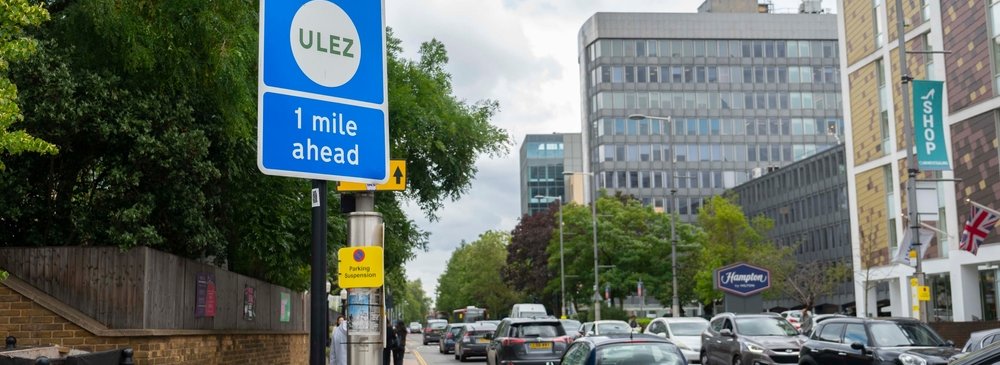| 7 mins read
Conservative strategists have interpreted the by-election result in Uxbridge as a signal that there are votes to be had from ‘motorists’ and more generally from junking the green agenda. But if opposition to ULEZ really did tip the Uxbridge result, we should be surprised. Most voters drive compliant vehicles and might benefit from cleaner air. It is possible that some were misinformed and assumed that they would have to pay; they are now finding out that they do not. But it is more likely that voters were swayed by the forceful interventions of opponents. Dissecting the motives and arguments of those opponents reveals that ULEZ was a phoney war: a small scheme with a marginal financial impact became the ground for a bigger battle over road pricing, much of it fought by people who were not greatly affected by ULEZ.
The mobilisation of bias
Opponents mobilised to respond to Transport for London’s (TfL’s) consultation on its plan to extend the ULEZ area to the whole of Greater London. Over two-thirds of individual responses were against the extension. A high proportion of those responding – more than half of the respondents living in outer London – said that their vehicle was non-compliant, whereas DVLC data suggested that only around a third of vehicles registered to households in the area were non-compliant. Data on vehicles being driven around, drawn from cameras, put the non-compliance rate at around 10%, consistent with older vehicles being less heavily used.
Of course the most likely reason for the high proportion of consultation respondents who said that their vehicle was noncompliant is that owners of noncompliant vehicles were more likely to respond. They have reason to do so, since they will be directly affected. It is also no surprise that respondents drove more frequently than the average person. The consultation does not pick up what proportion drove vans rather than cars, but it is likely that van drivers were disproportionately represented, as their vehicles have lower compliance rates. Biased responses are to be expected in consultations. Those most affected by pollution may not take up the cudgels to defend their interests, as the benefits of the measure are distant, probabilistic and hard to put a monetary value on, whereas for noncompliant motorists they are certain and financial.
Follow the money
Alongside the individual responses to the consultation were organised responses, amounting to about 20% of all responses. They came from ULEZ supporters organised by Living Streets, London Cycling Campaign, Friends of the Earth and Wearepossible, but also from ULEZ opponents coordinated by Fair Fuel UK. Fair Fuel largely mobilised responses primarily from outside Greater London (80%). More generally, some of the loudest voices raised against ULEZ expansion were from the home counties. Gareth Johnson, the Conservative MP for Dartford, was a leading voice in the parliamentary debate on ULEZ. His line was that the Mayor was expanding ULEZ to raise revenue. ULEZ charges would be paid by his constituents, outside the GLA area, which was ‘taxation without representation’. South Thanet MP Craig Mackinlay, promoter of Fair Fuel through the All-Party Parliamentary Group that he chairs, took the same line.
The Mayor and TfL emphasised that compliance is already high, and ULEZ will not raise a lot of money. This did not reassure their Conservative opponents, who see ULEZ as a Trojan horse for a wider programme of road pricing. In a way, they are right. The TfL Report does not hide the fact that a bigger scheme is in preparation. The claim that Sadiq Khan is using ULEZ expansion to support the GLA’s budget generalises to the fear that road pricing will turn out to be an attractive source of revenue for any government under financial pressure.
What do the public really think?
Surveys of public opinion did not reveal fierce opposition to ULEZ. In the survey commissioned by TfL, only 27% of respondents said that ULEZ expansion should not be implemented, although another 8% favoured a delay. One striking feature of that survey was the share of ‘don’t know’ responses (22%). Women were much more likely than men to respond ‘don’t know’ (28% of women, 16% of men). There was also a class and ethnic bias, with higher-income groups and those of white ethnic origin more likely to have a view. These differences could genuinely reflect differences in access to information, but they could also reflect different self-assessments of their right to have an opinion. The non-respondents are more likely not to be car owners and drivers, and they may have declined to state a view due to not seeing ULEZ as ‘their’ issue. Yet of course the detrimental effects of pollution on health are their concern.
The expansion of ULEZ went ahead at the end of August. A much-improved scrappage scheme was introduced to help owners of older cars in Greater London, although this did not mollify opponents outside the GLA area. Already, much of the fuss has died down. The evidence on low traffic neighbourhoods is that support for measures rises after they are implemented. People fear that they will have to make costly adjustments, and then find that these costs have been exaggerated, often by opponents whose targets lie elsewhere.
We do not know how many people identify as ‘motorists’, given the many competing identities that car owners and drivers may prefer to adopt. What we do know from ULEZ and other measures is that support for motorists can readily be mobilised. This mobilisation may be biased towards special interests, but vocal opposition to a policy makes people uneasy, making it more likely that the status quo will prevail. Yet not only does public opinion tend to come round to measures once implemented, but also the status quo is unsustainable, as a responsible government thinking further ahead than the next election would recognise.
Need help using Wiley? Click here for help using Wiley

